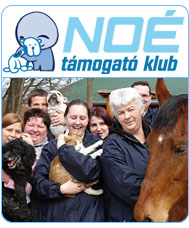|
|
|
| |
Give
Tesco – when „every little helps” is not enough
2010.07.19.
Tesco, our 3 year-old pony fell sick Friday afternoon, he exhibited the signs of colic. He was apathetic, hung his head, moved clumsily and had a high heart rate, and had no intestinal sounds (even though those are always there in healthy horses). We saw immediately that he is in a big trouble, so we started to make phone calls. It was almost impossible to reach a vet specialized in horses as everyone was on a summer leave – and those who were not on holiday had to substitute 3 colleagues and were busy on the other side of the city. At last we were able to reach a vet from the Farm Animal Hospital in Üllő who was willing to come and see Tesco. The pony received the necessary treatment and got better, but of course we separated him from the others. Next morning he greeted us happily in his box, so we let him back to the other horses. Unfortunately, the crisis was not over: after some 20 minutes he showed the symptoms of abdominal colic again.
About colic in horses:
The term colic is an umbrella term for various kinds of gastrointestinal conditions and other forms of abdominal pain. Horses in this condition show clear signs of pain, they are nervous, keep their heads low, have a flehmen response, paw and scrap repeatedly, watch their flanks, roll and stand up again, bite or nip their stomachs, sometimes they even jump around in a ravaging manner, and lay on their backs motionless for several minutes afterwards.
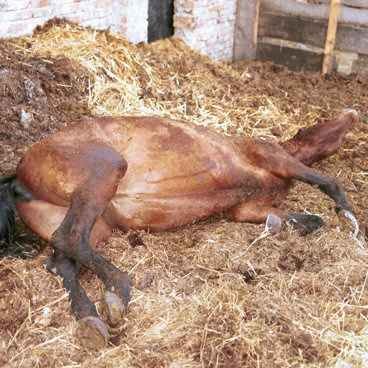
In a spasmodic colic (this is the most common type, more than 50% of all colical conditions), there are increased peristaltic contractions in the horse's gastrointestinal tract. Intense spasms take several minutes, but between two spasms the horse shows no sign of illness or pain. In other cases, horses in a colic condition are almost paralized, extremely calm and motionless. In order to avoid pain they stand in a characteristic position, with their legs stretched out to the front and to the back, and watch their bellies with a painful expression on their faces. In case of extreme pain some horses even sit down as dogs do.
Other symptoms of colic are the loss of appetite, high heart rate, shorting of breath, heavy sweating. A gas built-up in the gastrointestinal tract can result in intense intestinal sounds in the first phase of the condition. In some cases even the smallest change in the animal's keeping conditions or a sudden change in feed can result in a colic.
Even though colic sometimes passes by its own without causing serious problems, the prognosis of such a condition is difficult to tell. Sometimes the pain goes away because there is no peristaltic movement in the digestive tract and the sensory receptors are not functioning properly. After several hours, however, the pain comes back and the horse's condition deteriorates quickly.
As horses are unable to vomit, it is crucial to prevent pressure in the stomach. In the worst case the pressure in the stomach or the bowls result in a rupture, and then the animal's life cannot be saved. The horse's life is also in danger if an impaction in the digestive tract prevents normal peristaltic movements. In this case, toxins start to disengage from the not fully digested food material, and cause endotoxemia that can cost the animal's life. If a horse becomes calm and motionless after an intense spasmatic attack and starts to show the symptoms of a shock – shortening of breath, high heart rate and cold sweat –, then it's a clear sign of mortal peril.
All colic conditions must be treated as soon as possible. A veterinarian must be called immediately. Until the vet arrives, the horse must not eat – if necessary, even a muzzle can be fastened to its head. Drinking too much is also dangerous, but it is important to give small amounts of water on a regular basis in order to prevent dehydratation. This is crucial, as the horse's vegetative neural system tries to compensate for the impaction with sending liquid to that part of the tract. In some cases, walking can restart the peristaltic movements, but trotting and gallopping is not advised as they result in an even higher heart rate. Walking is advised only if the heart rate is lower than 60 per minute. Warmth has an antispasmodic effect, so it is adviseable to cover the horse with a thick blanket that keeps its flank warm; gentle massaging of the belly can also prove helpful. There is an acupuncture point on the ear whose stimulation can help against the shock. Rolling was for long considered as harmful but this has been disproven, as rolling usually does not cause complications but sometimes might help against the spasms.
In case of a spasmatic colic the veterinarian applies an antispasmodic treatment as well as injections that intensify circulation. If there is a gas built-up („gassy colic”), an enema can be useful as it helps the horse to get rid of the gases in a natural way. In case there is too much food material in the tract and the stomach is under pressure, the vet may remove its content by using a nasogastric tube. Hypertonic saline, and sometimes laxatives as liquid paraffin or oil is used. If the congestion lasts for more days, administration of IV fluids might be necessary.
Unfortunately, colic is sometimes caused by a twist of the intestines, in which case death can occur in several hours if the condition is untreated. This kind of colic can only be treated by immediate surgery that removes the necrotic part of the bowl. This surgery, however, is rather dangerous, as anaesthesia might be harmful for the weak and exhausted body. After surgery, most horses need half a year to gain back their full strenght.
The vet came to see Tesco and unfortunately it was clear that the pony's condition is serious. IV administration was applied; the pony also received paraffin by a nasogastric tube. A gas built-up was partly removed by a peritoneal tap. We kept walking with Tesco and hoped that his digestion will be back to normal soon.
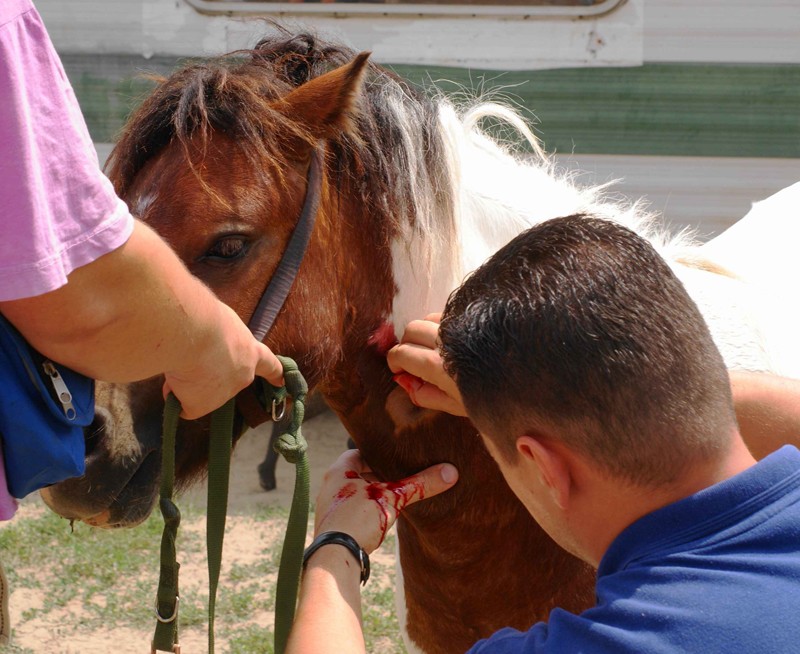
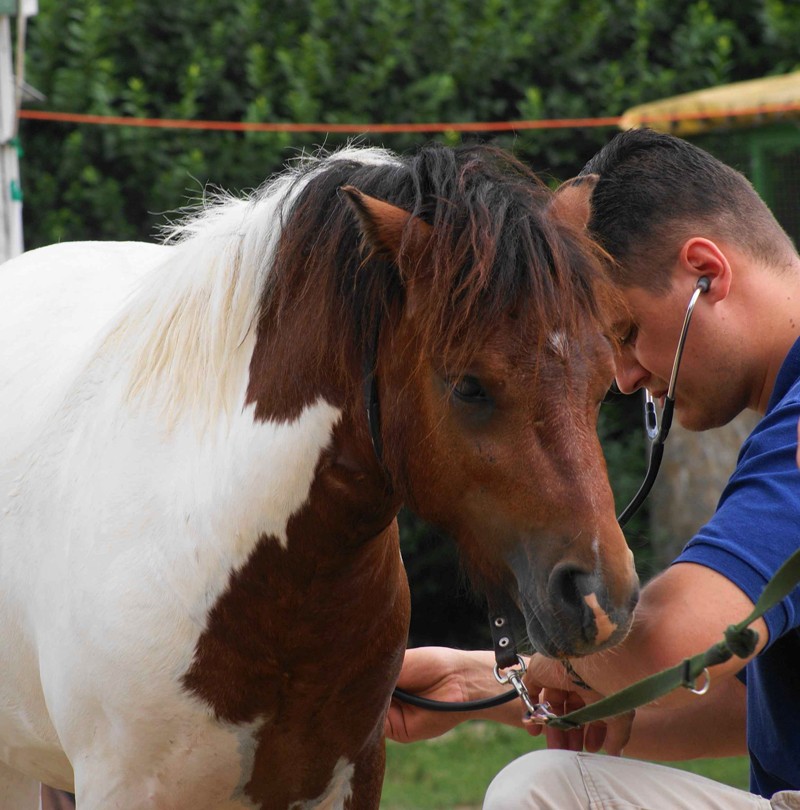
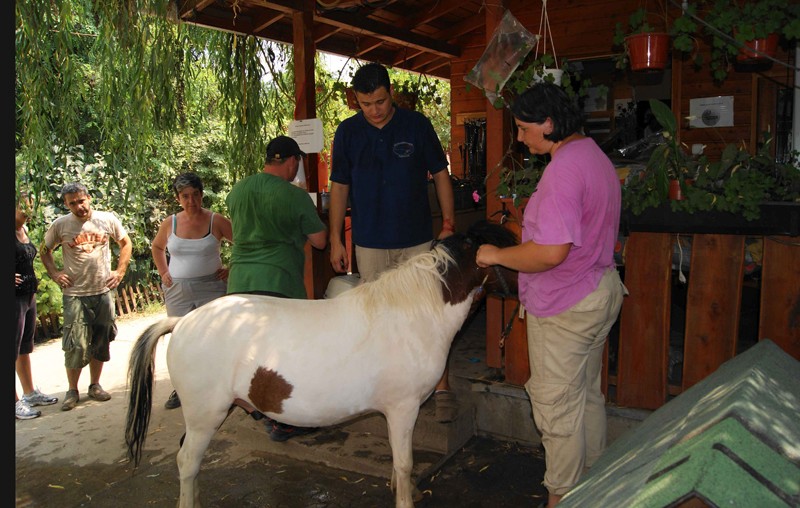
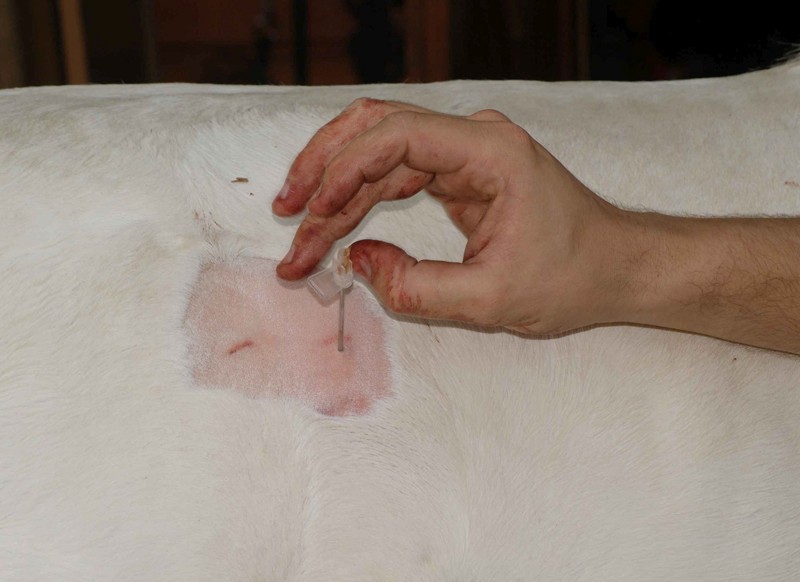
The vet had to leave due to his obligations in the clinic, but we agreed that should the horse's condition not change in one hour's time, we take him to the clinic. As Tesco got worse after 20 minutes, we did not hesitate but took him to the animal hospital where a four hours long life saving surgery was performed.
Of course, we knew that the surgery is very risky, but it never crossed our minds that we should simply put Tesco to sleep without giving him a chance to survive.
Even though the surgery was complicated, as incisions had to be made on three different spots, Tesco survived and the treatment was successful. Unfortunately, the three incisions also mean a triple risk of infection and peritonitis.
It seems that Tesco is coping well with the situation. He is in a relatively good mood and eats the special post-surgery food with a good appetite. He is not very keen on the muzzle he has to wear in order to prevent him to eat the straw bedding, but we hope this will be his biggest problem in the next few weeks...
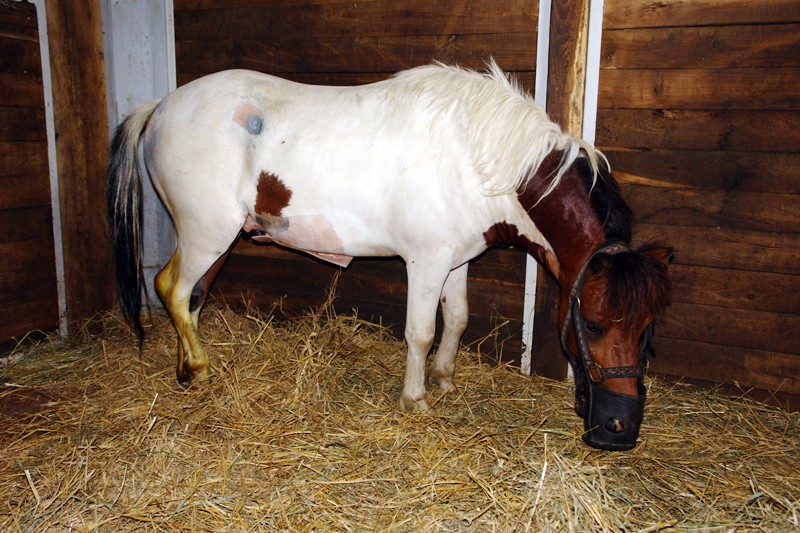
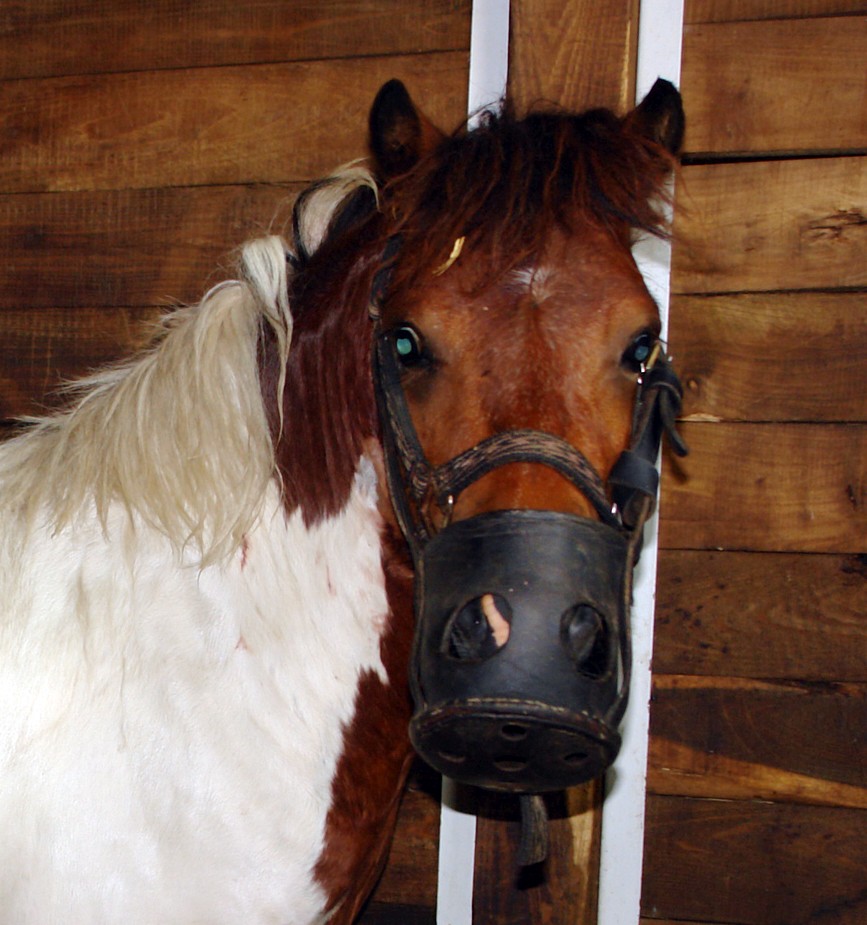
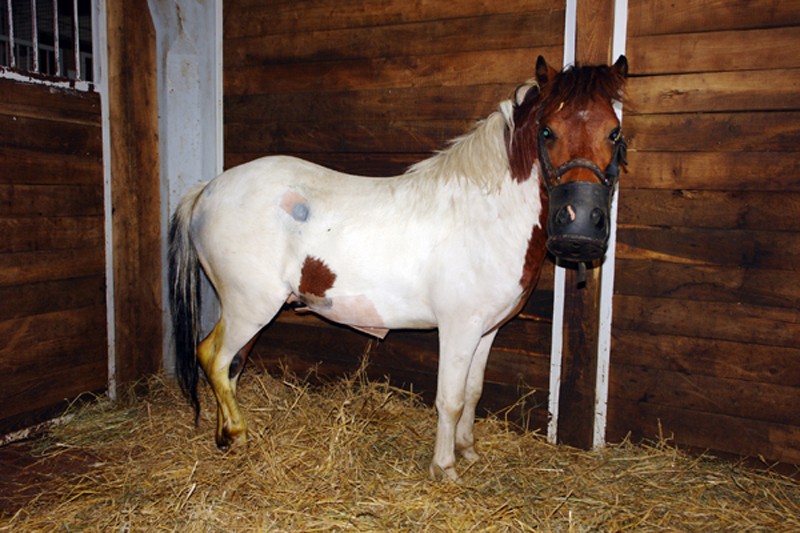
He probably has to stay in the animal hospital for another two weeks, but of course, we visit him every day. The costs of the surgery and the post-surgery treatment are, unfortunately, very high, ca. 500,000 HUF. This means a huge and unexpected expense in our budget. We ask all of those who can help to contribute to Tesco's medical costs. Please make your donations to the 11710002-20083777 Hungarian bank account number (IBAN: HU62 1171 0002 2008 3777 0000 0000; SWIFT (BIC): OTPV-HU-HB). It is also possible to make a donation on-line with a bank card. Please, write „Tesco” in the note section. You can also support Tesco by virtually adopting him!
We will get back to you with the news in a few days.
Photos of the surgery (21.07.2010):
Preparations
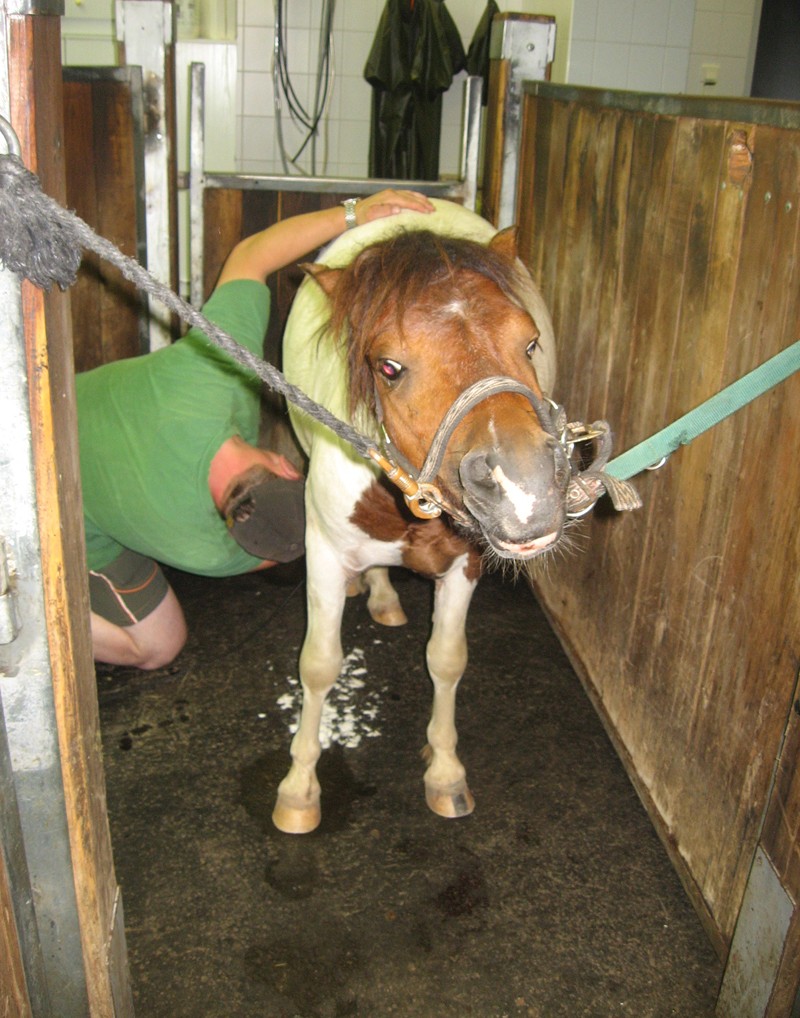
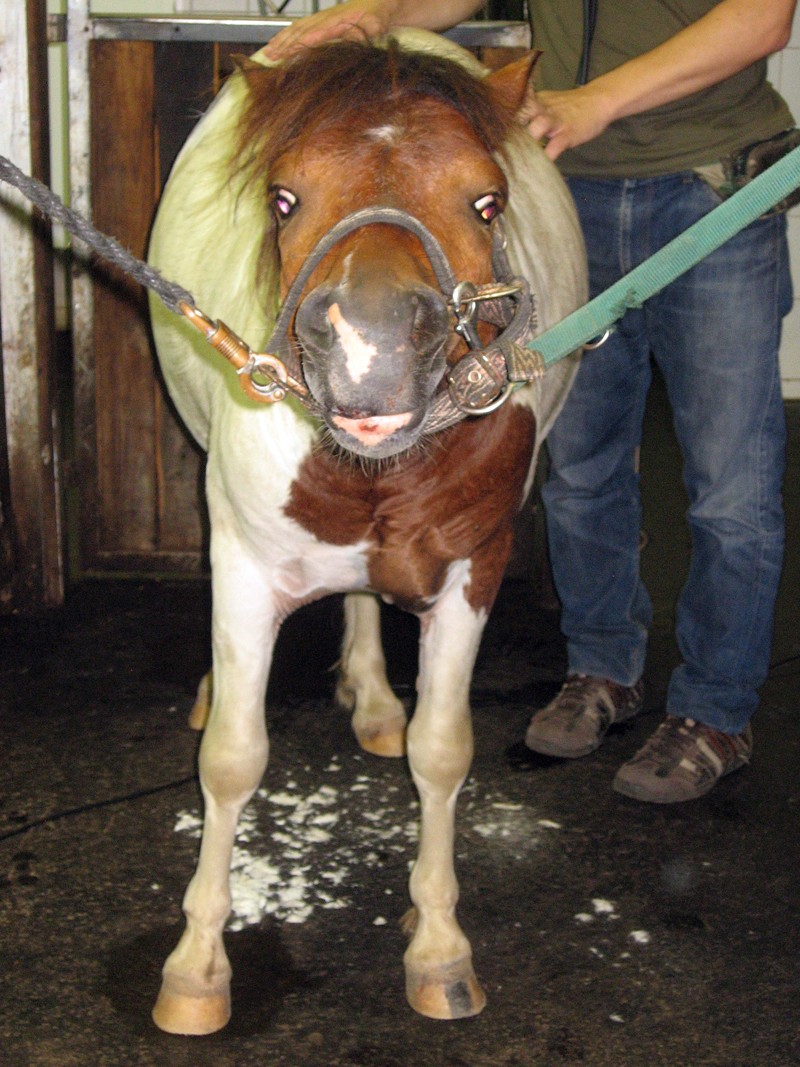
After anaesthesia, the horse is taken to the surgery room by using a winch
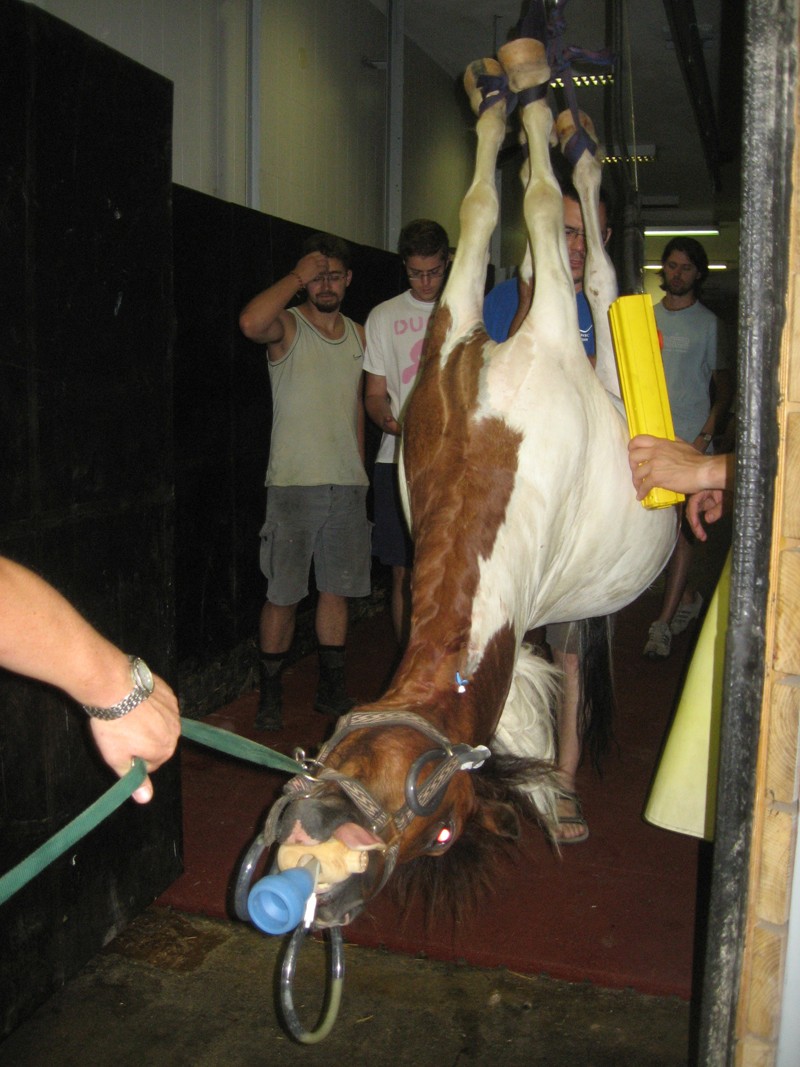
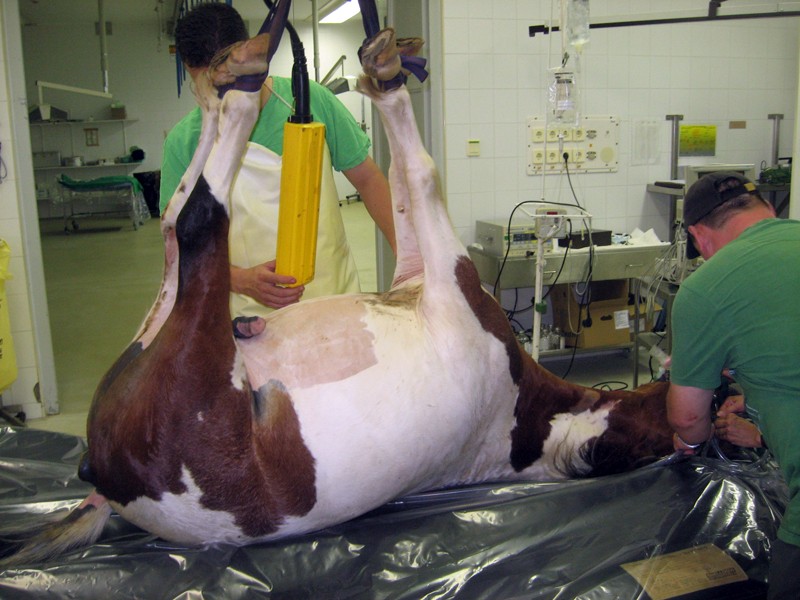
During the surgery
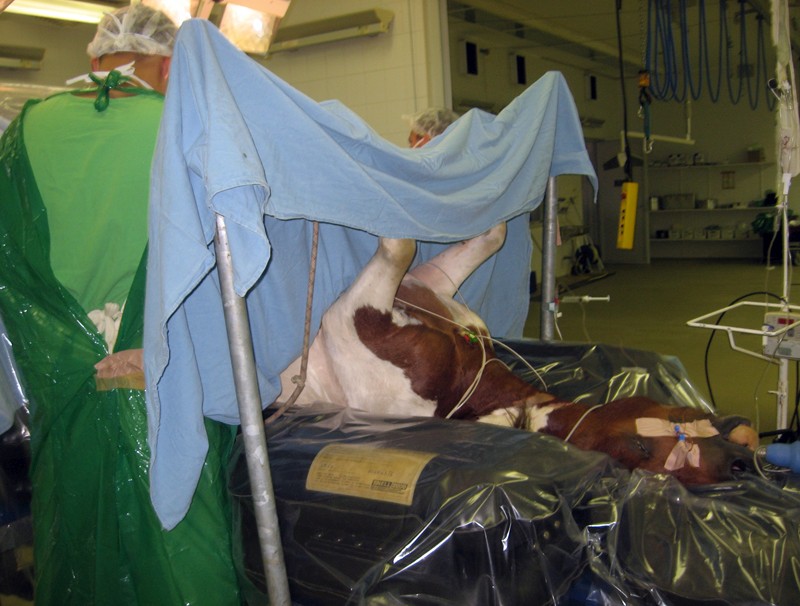
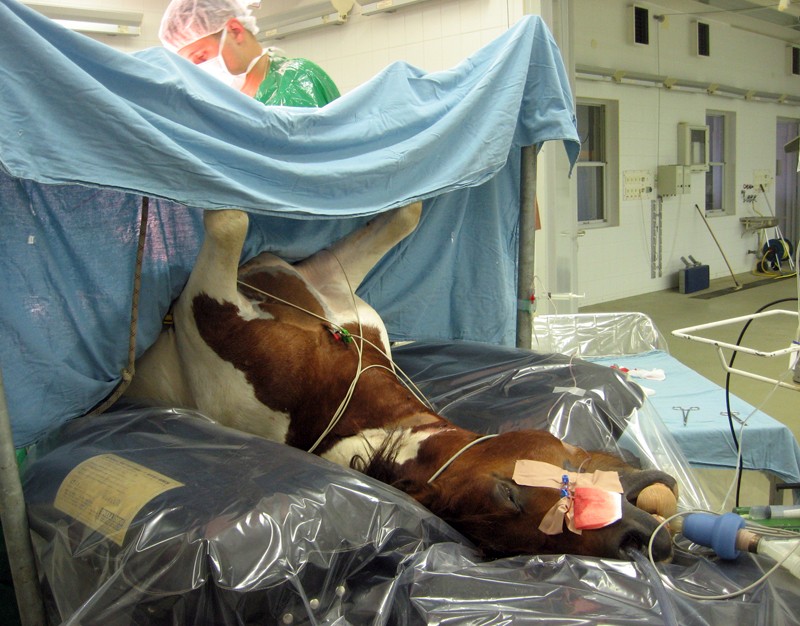
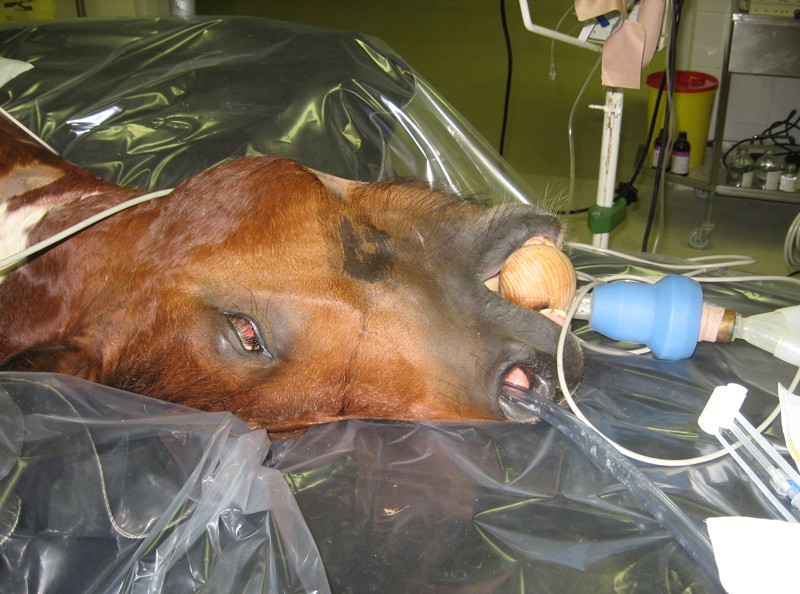
 Share
Vissza a cikkekhez Share
Vissza a cikkekhez
|
|
| |
|
|
|
|
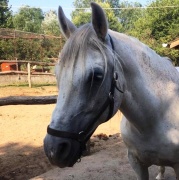 Name: Dollár
Name: Dollár
Born: 2001.03.07.
Virtual adoption: Has no virtual master
I want to virtually adopt him/her!
Show previous virtual masters
| Nick |
From |
Till |
| Zoé |
2024.01.17. |
2024.01.22. |
More about the animal ⇒
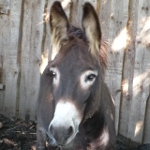 Name: Muki
Name: Muki
Born: 2000.01.01.
Virtual adoption: Has no virtual master
I want to virtually adopt him/her!
Show previous virtual masters
| Nick |
From |
Till |
| S/he did not have a virtual master yet |
More about the animal ⇒
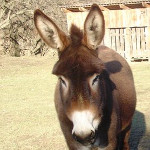 Name: Szamóca
Name: Szamóca
Born: 2009.01.01.
Virtual adoption: Has no virtual master
I want to virtually adopt him/her!
Show previous virtual masters
| Nick |
From |
Till |
| Levente |
2020.10.22. |
2020.10.27. |
More about the animal ⇒
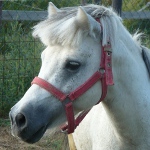 Name: Menthol - JELENLEG IDEIGLENES BEFOGADÓNÁL ÉL!
Name: Menthol - JELENLEG IDEIGLENES BEFOGADÓNÁL ÉL!
Born: 2005.08.01.
Virtual adoption: Has no virtual master
I want to virtually adopt him/her!
Show previous virtual masters
| Nick |
From |
Till |
| S/he did not have a virtual master yet |
More about the animal ⇒
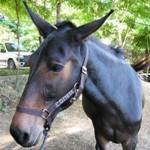 Name: Amálka
Name: Amálka
Born: 1998.01.01.
Virtual adoption: Has no virtual master
I want to virtually adopt him/her!
Show previous virtual masters
| Nick |
From |
Till |
| Miléna |
2020.12.09. |
2020.12.19. |
More about the animal ⇒
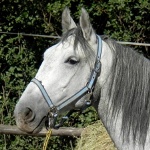 Name: Carmen
Name: Carmen
Born: 2006.01.01.
Virtual adoption: Has no virtual master
I want to virtually adopt him/her!
Show previous virtual masters
| Nick |
From |
Till |
| Magdolna |
2025.12.22. |
2026.01.06. |
| Réka |
2021.03.23. |
2021.04.20. |
More about the animal ⇒
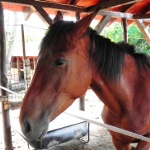 Name: Kalinka - JELENLEG IDEIGLENES BEFOGADÓNÁL ÉL!
Name: Kalinka - JELENLEG IDEIGLENES BEFOGADÓNÁL ÉL!
Born: 2008.04.01.
Virtual adoption: Has no virtual master
I want to virtually adopt him/her!
Show previous virtual masters
| Nick |
From |
Till |
| S/he did not have a virtual master yet |
More about the animal ⇒
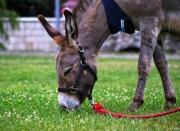 Name: TóthOttó
Name: TóthOttó
Born: 2009.11.01.
Virtual adoption: Has no virtual master
I want to virtually adopt him/her!
Show previous virtual masters
| Nick |
From |
Till |
| S/he did not have a virtual master yet |
More about the animal ⇒
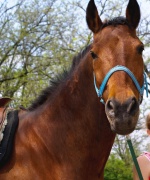 Name: Basa
Name: Basa
Born: 1998.01.01.
Virtual adoption: Has no virtual master
I want to virtually adopt him/her!
Show previous virtual masters
| Nick |
From |
Till |
| S/he did not have a virtual master yet |
More about the animal ⇒
 Name: Tesco
Name: Tesco
Born: 2007.01.01.
Virtual adoption: Has no virtual master
I want to virtually adopt him/her!
Show previous virtual masters
| Nick |
From |
Till |
| Timár Lili |
2023.01.03. |
2023.01.13. |
More about the animal ⇒
|





 Magyar
Magyar
 Deutsch
Deutsch











